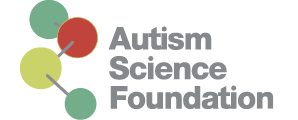Assessments We Provide
Supporting Parents With Earliest Intervention
Helping Children Get the Best Care and A Path To Follow
Earliest intervention to achieve successful outcomes.
Use the latest assessment and treatment techniques.
Exceptional support, understanding and guidance for parents and children.
We believe…
The earliest intervention, starting with the best assessment techniques, will create the best opportunity for your child to succeed and evolve to their full potential.
At Linden Neuropsychological Services, we provide comprehensive assessments for Neurodevelopmental Disorders (NDDs), neurocognitive and psychological challenges.
Call Us (833)-333-3595
PROUD MEMBER & SUPPORTER OF











Conditions We Help Assess
Pediatric Therapeutic Interventions & Counseling are available from infant to age 12. Occasionally, depending on the condition, we may help older children.
DEVELOPMENTAL DELAY
Speech and language, social and emotional, or cognitive development.
LEARNING DIFFICULTIES
Challenges with reading, dyslexia, writing, math, or other academic skills.
ATTENTION & HYPERACTIVITY
Children experiencing attention and hyperactivity issues, such as attention deficit hyperactivity disorder (ADHD) or attention deficit disorder (ADD).
AUTISM SPECTRUM DISORDER
Specialized neuropsychological services for children with autism spectrum disorder (ASD), a developmental disorder that affects social communication and behavior.
BEHAVIORAL & EMOTIONAL
Experiencing behavioral and emotional problems, including aggression, anxiety, depression, or other issues that affect a child's emotional well-being.
COGNITIVE & BEHAVIORAL FUNCTION
Evaluation and treatment following an accident involving a brain injury or an illness such as, meningitis or encephalitis, - conditions in which the brain becomes inflamed - or, genetic disorders.
Call Us (833)-333-3595
Assessments We Provide
Our comprehensive assessments cover a variety of concerns using the most current diagnostic methods.
Neuropsychological Assessment
Develop personalized treatment plans that address the individual's cognitive abilities and behavior
Neuropsychological assessment is a comprehensive evaluation of cognitive abilities and behavior in order to understand how the brain is functioning.
During the assessment, we use a variety of standardized tests to measure and assess different cognitive areas such as: memory, attention, language, spatial reasoning, and executive functioning. The assessment may also include measures of emotional and behavioral functioning.
Neuropsychological assessments are used to help diagnose a variety of neurological and psychological conditions, such as traumatic brain injury, stroke, ADHD, and learning disabilities.
The results of the assessment will provide important diagnostic information used to develop personalized treatment plans that address the individual's specific strengths and weaknesses.
Psychoeducational Assessment
Develop effective interventions and support systems that can help the individual reach their academic potential.
Psychoeducational assessment is used to evaluate an individual's cognitive and academic abilities - learning strengths and weaknesses.
During a psychoeducational assessment, we use a variety of standardized tests to measure and to evaluate different cognitive and academic areas, such as intelligence, memory, attention, processing speed, reading, writing, and math skills. The assessment may also include measures of emotional and behavioral functioning.
Psychoeducational assessments are often used to identify learning disabilities, ADHD, and other conditions that can impact academic performance.
The results of the assessment will provide educators, parents, and healthcare professionals to develop effective interventions and support systems that can help the individual reach their academic potential.
Psychological Assessment
Developed treatment plans to address individual mental health needs.
Psychological assessment is a process of evaluating an individual's psychological functioning, mental health, and emotional well-being.
During a psychological assessment, we use a variety of standardized tests to measure and evaluate different areas of psychological functioning, such as personality traits, cognitive abilities, emotional functioning, and behavioral patterns. The assessment may also include clinical interviews, observation, and self-report measures.
Psychological assessments can be used to help diagnose a variety of mental health conditions, such as anxiety disorders, mood disorders, personality disorders, and psychotic disorders.
The results of the assessment will provide important diagnostic information used to develop personalized treatment plans that address the individual's specific mental health needs.
Coexisting Medical Diagnosis and Autism (dual or multiple diagnosis)
Coexisting diagnosis refers to the presence of two or more conditions occurring simultaneously— a medical condition(s) and Neurodevelopmental Disorders (NDDs).
Coexisting conditions often influence each other in terms of symptoms, diagnosis, treatment, and overall health outcomes. When it comes to assessing co-existing conditions the assessment process involves gathering information from multiple sources, including clinical interviews, behavioral observations, medical history, and standardized assessment tools. The specific assessment methods may vary depending on the suspected coexisting conditions, but some common approaches include:
Clinical Interviews: Interviews with the individual (depending on the age), the parents or guardians to gather information about the individual's medical history, developmental milestones, and current symptoms.
Behavioral Observations: Direct observations of the individual's behavior and interactions are performed to assess symptoms associated with both autism and the suspected coexisting conditions. This may involve observing the individual in various settings, such as home, school, or therapy sessions.
Standardized Assessment Tools: Various standardized assessment tools are available to evaluate specific co-existing conditions. These tools may include rating scales, questionnaires, or checklists designed to assess symptoms related to mental health disorders, intellectual disabilities, language impairments, attention deficits, or other medical conditions.
Collaboration with Specialists: In some cases, collaborating with specialists may be necessary. This can involve consulting with medical professionals, psychologists, psychiatrists, speech and language therapists, or occupational therapists who have expertise in diagnosing and treating the suspected coexisting conditions.
The results of the assessments are crucial for developing individualized treatment plans that address both autism and the specific coexisting conditions, thereby promoting overall well-being and improving outcomes.
Call Us (833)-333-3595
Your child deserves to lead a happy, healthy, and fulfilling life.
With our support, we make wonderful life-changing moments possible; this is just the beginning of greater things to come.
Let’s discuss how we can help.
Call Us (833)-333-3595
Blog
Media Feature
Dr. Bonnee Price-Linden, PhD, answers questions about innovation in Autism














